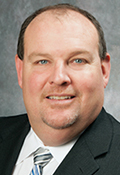Use opengraph image in content:
No
Display related media icon:
No
Panelists to share insights from 2017 events
By KIM VAN OOSTEN
CHA is hosting a forum in July on responding to natural disasters in a way that is in line with the Catholic health mission and a desire to have the maximum benefit.
CHA's summer meeting will address two types of disasters from both the international and domestic perspective:
- Those involving the community or communities served directly by the organization
- Those that while not in the organization's direct service market, are in communities that the organization feels compelled to assist as part of its mission
The July 25-26 gathering will be held at CHRISTUS Health's headquarters in Irving, Texas, a suburb of Dallas.
Ministry members from systems and facilities in communities impacted by fires, floods, hurricanes, mudslides and other catastrophes will share lessons they've learned. They'll describe top concerns they faced in their responses and explore the potential for greater coordination and collaboration in providing aid when disaster strikes. The forum will not be a detailed step-by-step training in disaster preparedness.

Compton
Keynote presentations, panel forums and discussion should elicit candid sharing around what went well and what needs improvement in future responses, said Bruce Compton. He leads CHA's international outreach activities, including disaster response.
The meeting also will provide ample networking time so that CHA members can meet their colleagues from across the country as well as international partners. In their presentations Catholic Relief Services and Catholic Charities USA disaster response leaders will provide participants with a better understanding of how to make connections with these organizations to coordinate disaster response efforts.
"People sincerely want to be of assistance in times of disaster," said Compton. "And while our mission in the Catholic health ministry calls us to aid those in need, we must ensure that our response is appropriate and that we are providing needed aid rather than services and materials we believe are needed, but have not been requested."
Compton said that through ties to sponsoring congregations, international mission work and employees who are native to areas recovering from disaster, CHA members have connections that span much of the globe.
"I have heard that oftentimes the opportunities that are available to really be of assistance are the kinds of things that people aren't interested in providing," Compton said, and he hopes the discussions at the conference can start to alter that mind-set.
He told the story of a health system chief executive who had a market that was devastated by flooding. The executive received many offers from clinicians and others eager to go to that market to fill in for peers who had been working multiple shifts and had families and property to tend to. However, people were less enthusiastic about backfilling the shifts of the nurses and colleagues traveling to the disaster zone.
A record year
According to Munich RE, a global reinsurance company based in Munich, Germany, worldwide natural catastrophes in 2017 totaled $330 billion dollars, an increase from $184 billion in 2016. There were approximately 10,000 fatalities from natural catastrophes in 2017, compared with approximately 9,650 deaths recorded in 2016.
Ranked by insured losses, the costliest natural catastrophes impacted the U.S. and the Caribbean:
- Hurricane Irma, which caused $32 billion in insured losses in the U.S. and the Caribbean
- Hurricane Harvey in the U.S., which resulted in $30 billion in insured losses
- Hurricane Maria in the Caribbean with $30 billion in losses
- Wildfires in the U.S. in October that resulted in losses of $8 billion
For additional information about the CHA disaster response forum, visit chausa.org/disasterresponsemtg
Copyright © 2018 by the Catholic Health Association
of the United States
For reprint permission, contact Betty Crosby or call (314) 253-3490.